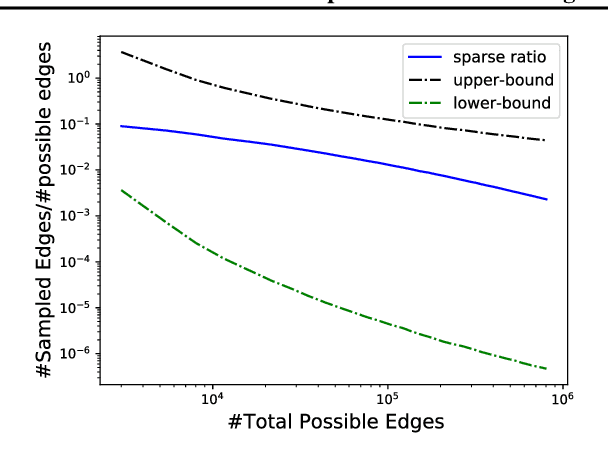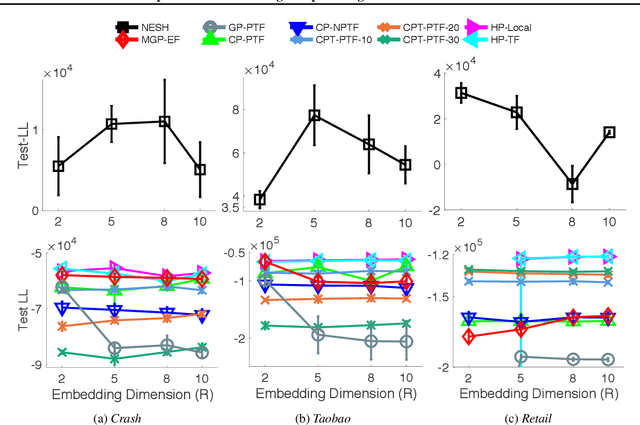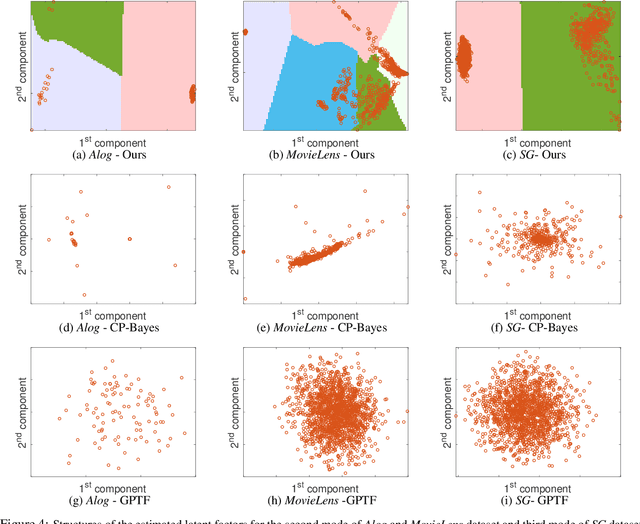Conor Tillinghast
Nonparametric Embeddings of Sparse High-Order Interaction Events
Jul 08, 2022


Abstract:High-order interaction events are common in real-world applications. Learning embeddings that encode the complex relationships of the participants from these events is of great importance in knowledge mining and predictive tasks. Despite the success of existing approaches, e.g. Poisson tensor factorization, they ignore the sparse structure underlying the data, namely the occurred interactions are far less than the possible interactions among all the participants. In this paper, we propose Nonparametric Embeddings of Sparse High-order interaction events (NESH). We hybridize a sparse hypergraph (tensor) process and a matrix Gaussian process to capture both the asymptotic structural sparsity within the interactions and nonlinear temporal relationships between the participants. We prove strong asymptotic bounds (including both a lower and an upper bound) of the sparsity ratio, which reveals the asymptotic properties of the sampled structure. We use batch-normalization, stick-breaking construction, and sparse variational GP approximations to develop an efficient, scalable model inference algorithm. We demonstrate the advantage of our approach in several real-world applications.
Nonparametric Sparse Tensor Factorization with Hierarchical Gamma Processes
Nov 03, 2021



Abstract:We propose a nonparametric factorization approach for sparsely observed tensors. The sparsity does not mean zero-valued entries are massive or dominated. Rather, it implies the observed entries are very few, and even fewer with the growth of the tensor; this is ubiquitous in practice. Compared with the existent works, our model not only leverages the structural information underlying the observed entry indices, but also provides extra interpretability and flexibility -- it can simultaneously estimate a set of location factors about the intrinsic properties of the tensor nodes, and another set of sociability factors reflecting their extrovert activity in interacting with others; users are free to choose a trade-off between the two types of factors. Specifically, we use hierarchical Gamma processes and Poisson random measures to construct a tensor-valued process, which can freely sample the two types of factors to generate tensors and always guarantees an asymptotic sparsity. We then normalize the tensor process to obtain hierarchical Dirichlet processes to sample each observed entry index, and use a Gaussian process to sample the entry value as a nonlinear function of the factors, so as to capture both the sparse structure properties and complex node relationships. For efficient inference, we use Dirichlet process properties over finite sample partitions, density transformations, and random features to develop a stochastic variational estimation algorithm. We demonstrate the advantage of our method in several benchmark datasets.
 Add to Chrome
Add to Chrome Add to Firefox
Add to Firefox Add to Edge
Add to Edge